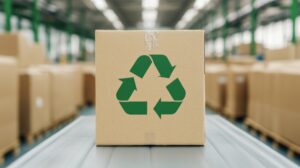The EU’s Carbon Border Adjustment Mechanism (CBAM) entered its transitional phase on October 1, 2023. This required EU importers of steel, aluminium, cement, fertilizer, hydrogen, and electricity to submit their initial quarterly reports on embedded carbon emissions by January 31, 2024. However, reports indicate that only a minority of European companies met this early CBAM reporting deadline. Now, those who haven’t submitted their reports by July 31, 2024, risk facing fines.
Importers were initially allowed to use default values for emissions reporting. However, for the remainder of the transitional period, from July 1, 2024 to December 31, 2025, importers must provide actual emissions data, with estimated values permitted for\ up to 20% of total emissions.
Importers have encountered several challenges in obtaining and submitting accurate emissions data, including difficulties in tracing third-country manufacturers, issues with determining emissions under the new CBAM guidelines, and concerns about the reliability of emission information provided by operators.
Verifying Data Accuracy
To ensure the accuracy of emissions data submitted to the EU, EU importers should thoroughly screen the data received from third-country operators. This involves requesting relevant documentation and ensuring alignment with CBAM greenhouse gas accounting principles. Additional steps include cross-verifying data against multiple sources, conducting audits for quality assessment, and validating calculations and measurements.
Looking Ahead
Beginning in 2026, after the transitional period has ended, EU importers of goods covered by CBAM must register with national authorities and purchase CBAM certificates. The price of these certificates will be calculated based on the weekly average auction price of the EU Emissions Trading System (ETS), expressed in €/tonne of CO2 emitted, making accurate data crucial to determining the number of certificates to be surrendered each year. As such, starting in 2026, emissions data for imported goods must be verified by a third party before submission to the European Commission.
However, proactively ensuring accurate data with each CBAM reporting deadline is good practice for EU importers and offers benefits such as minimizing compliance risks, estimating financial exposure accurately for future carbon taxes, and enabling informed decisions on decarbonization strategies.
Get Support
Tetra Tech can support EU importers by enhancing supply chain transparency and facilitating accurate CBAM reporting through services such as emissions data collection, quality assessment, and financial impact evaluation. For suppliers outside the EU, Tetra Tech offers assistance in CBAM readiness, determining embedded emissions, and developing broader decarbonization strategies and initiatives. For more information, please visit our CBAM Compliance Support Page or contact us by email at [email protected].






